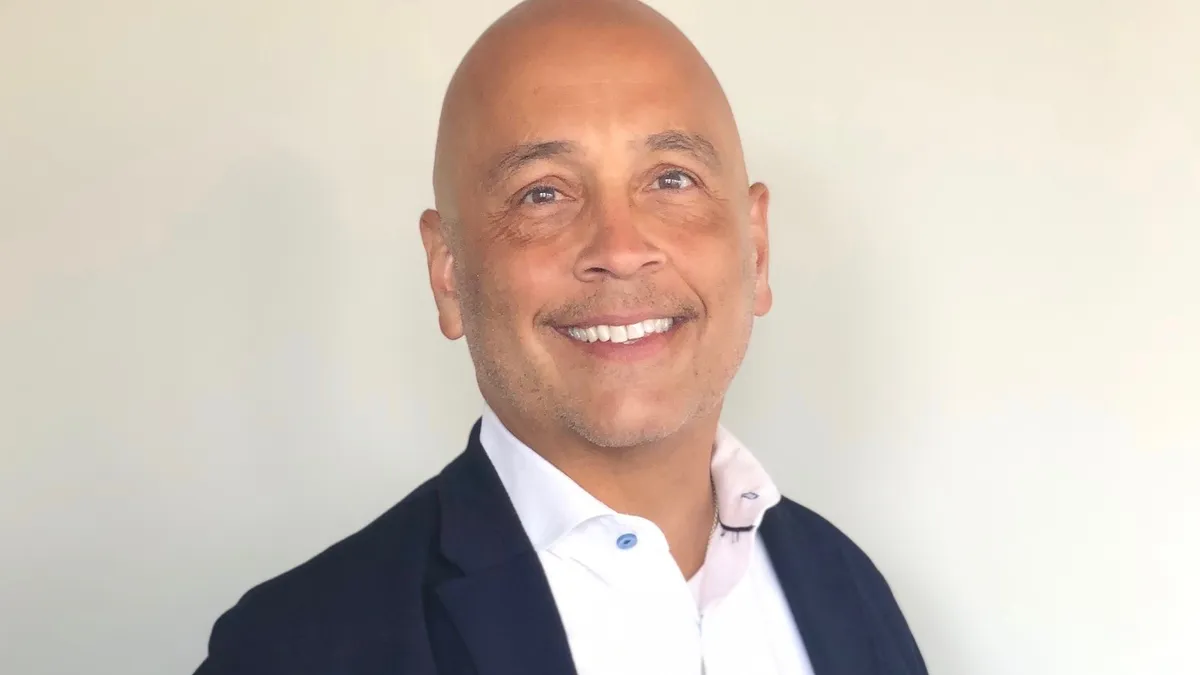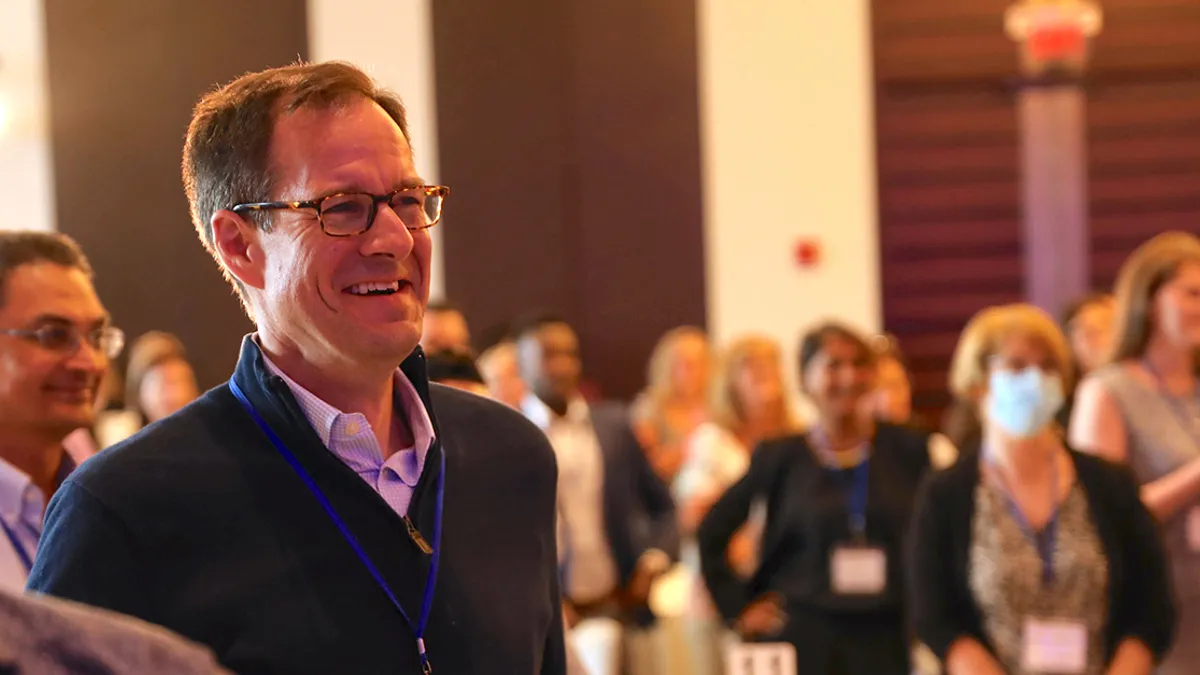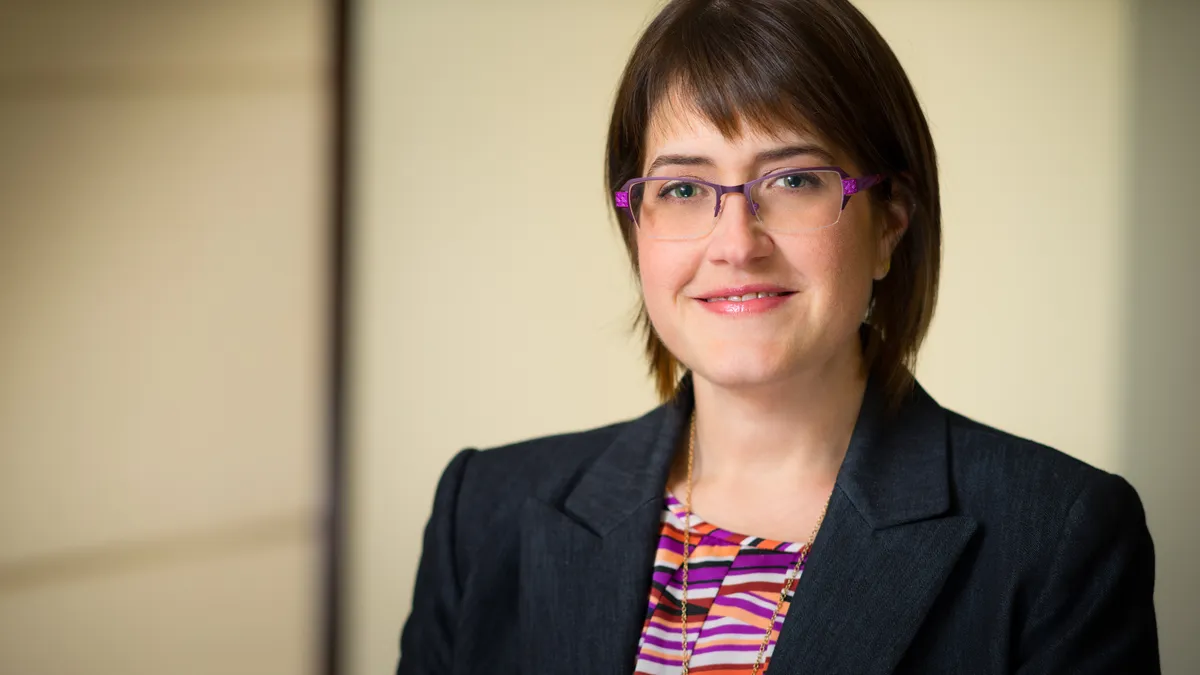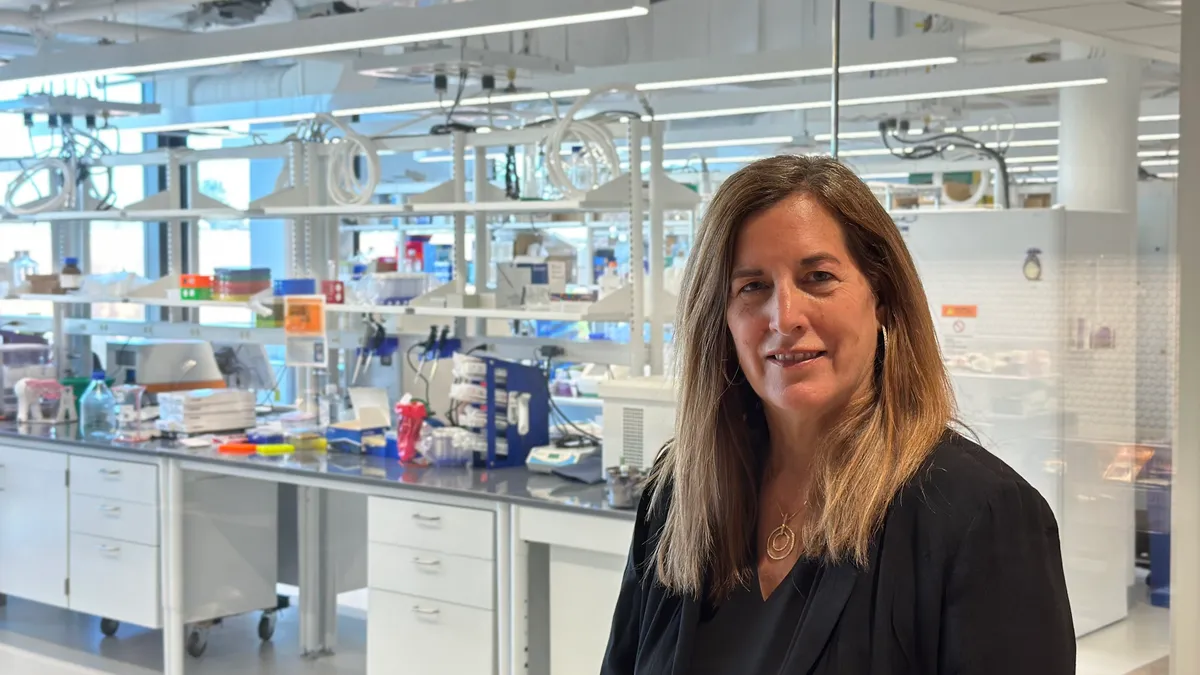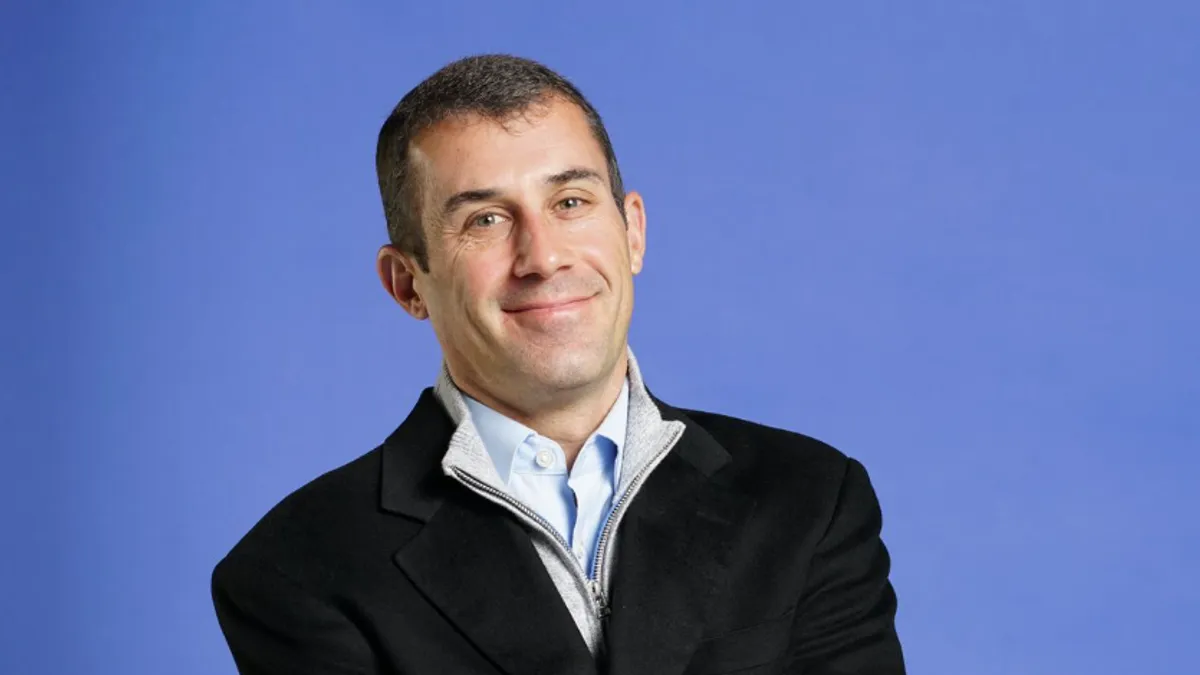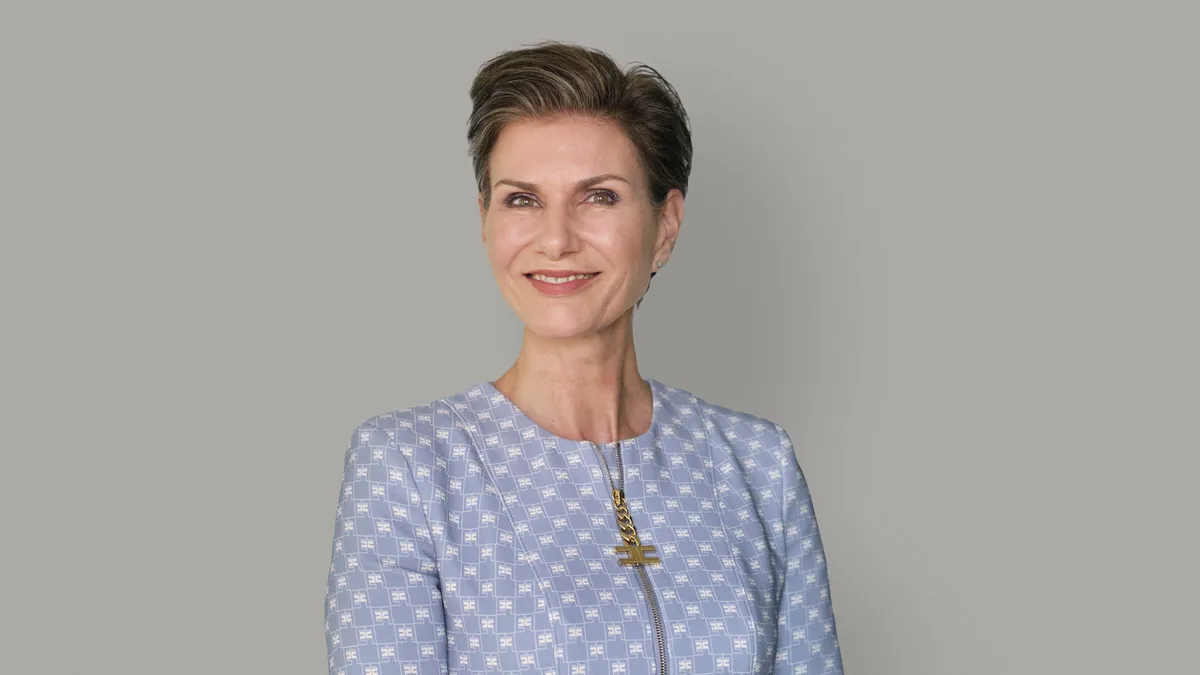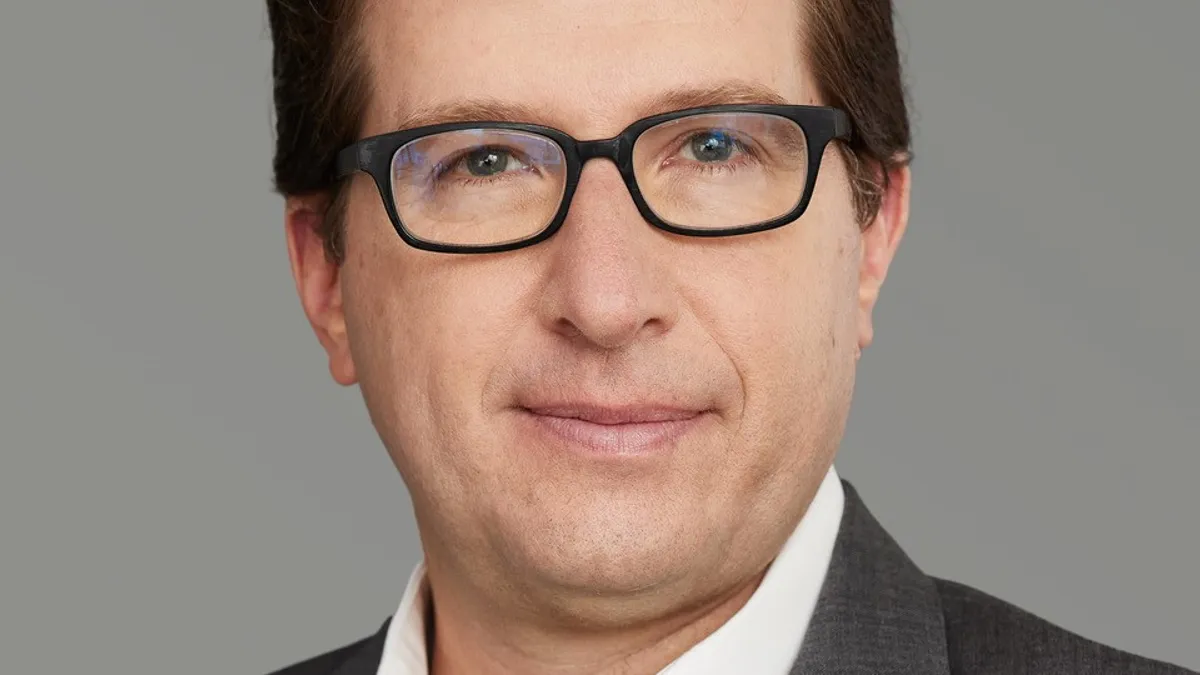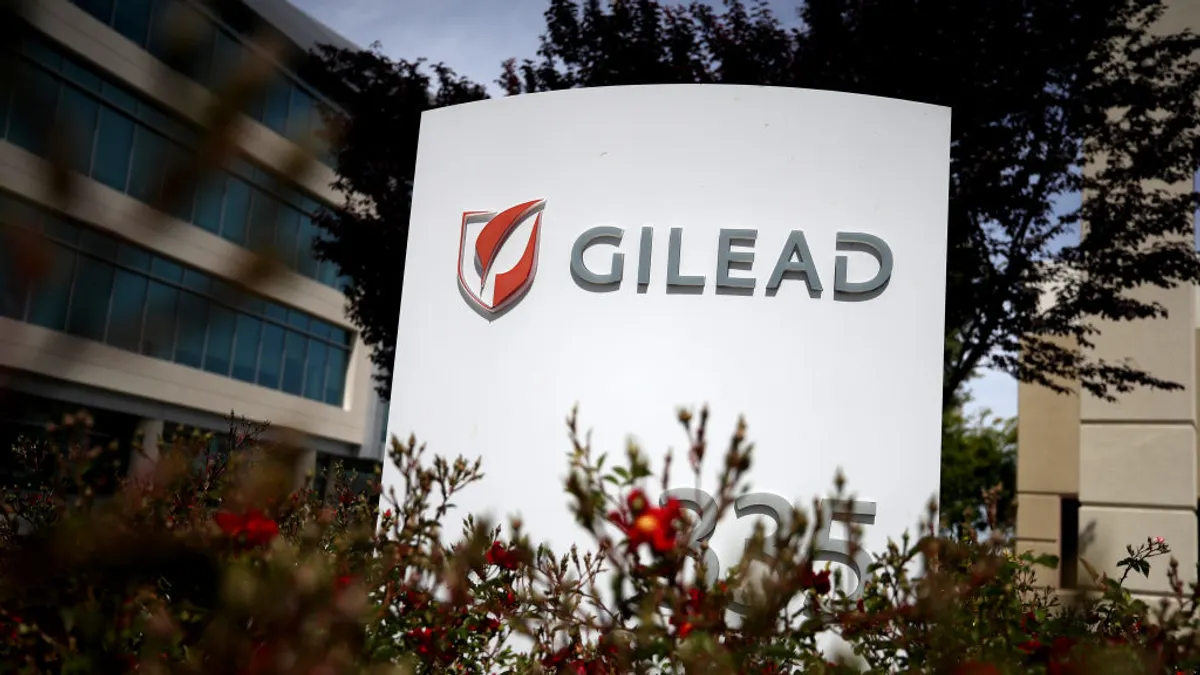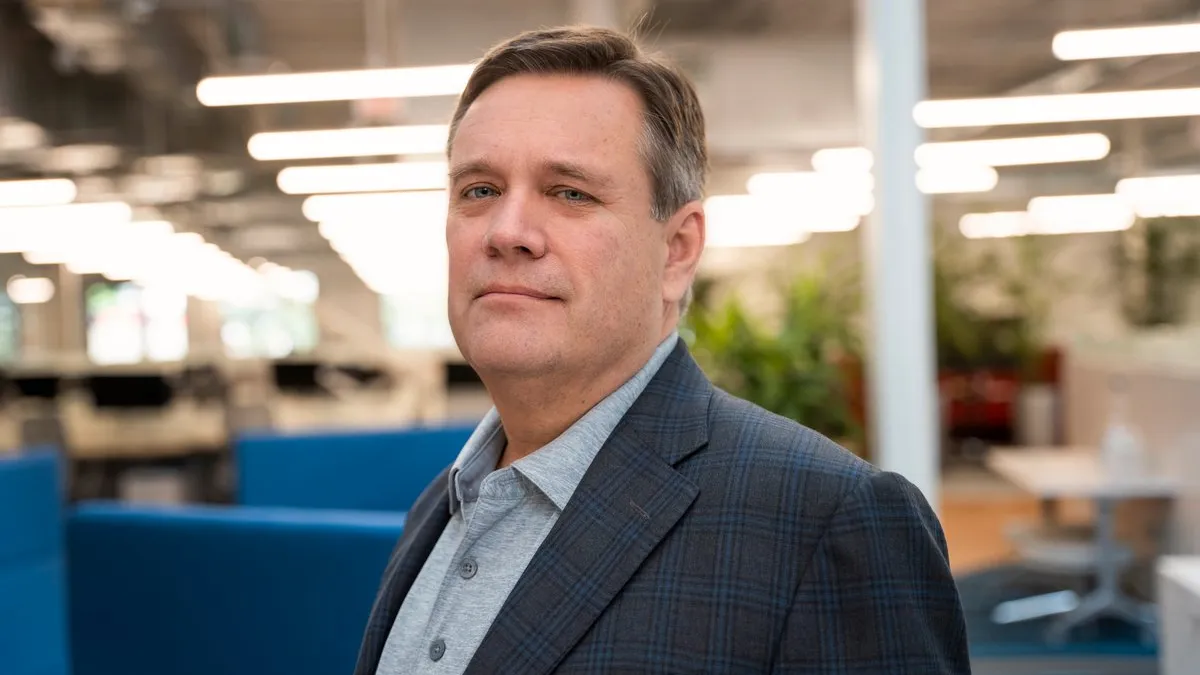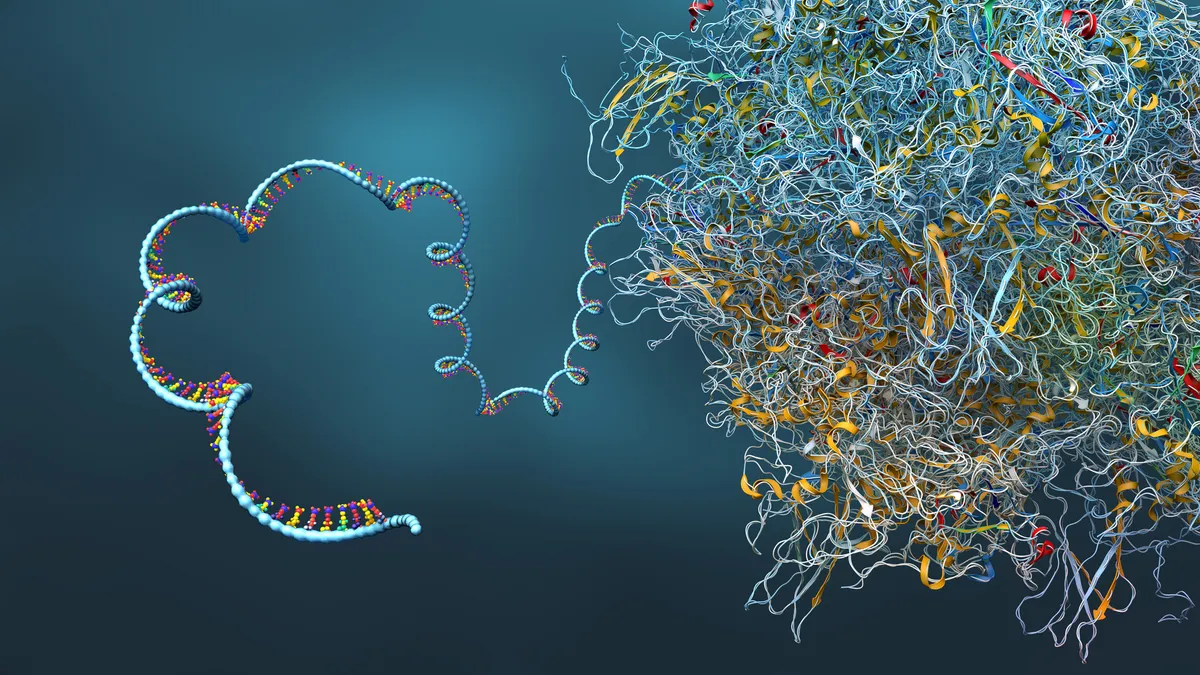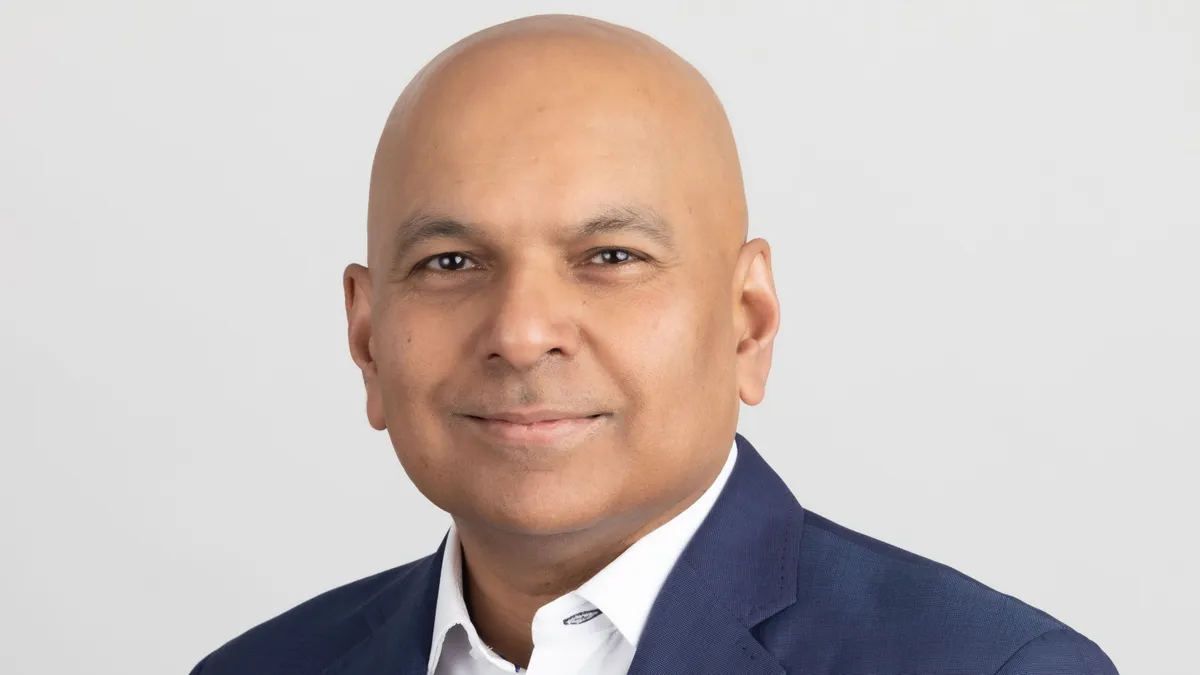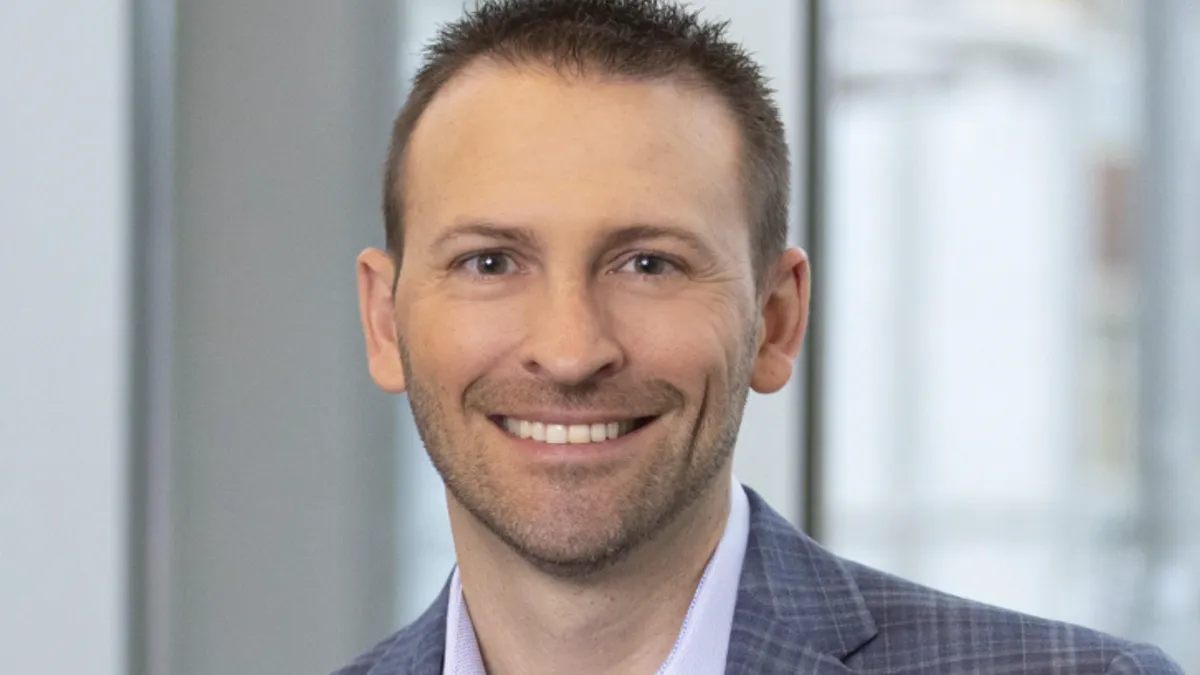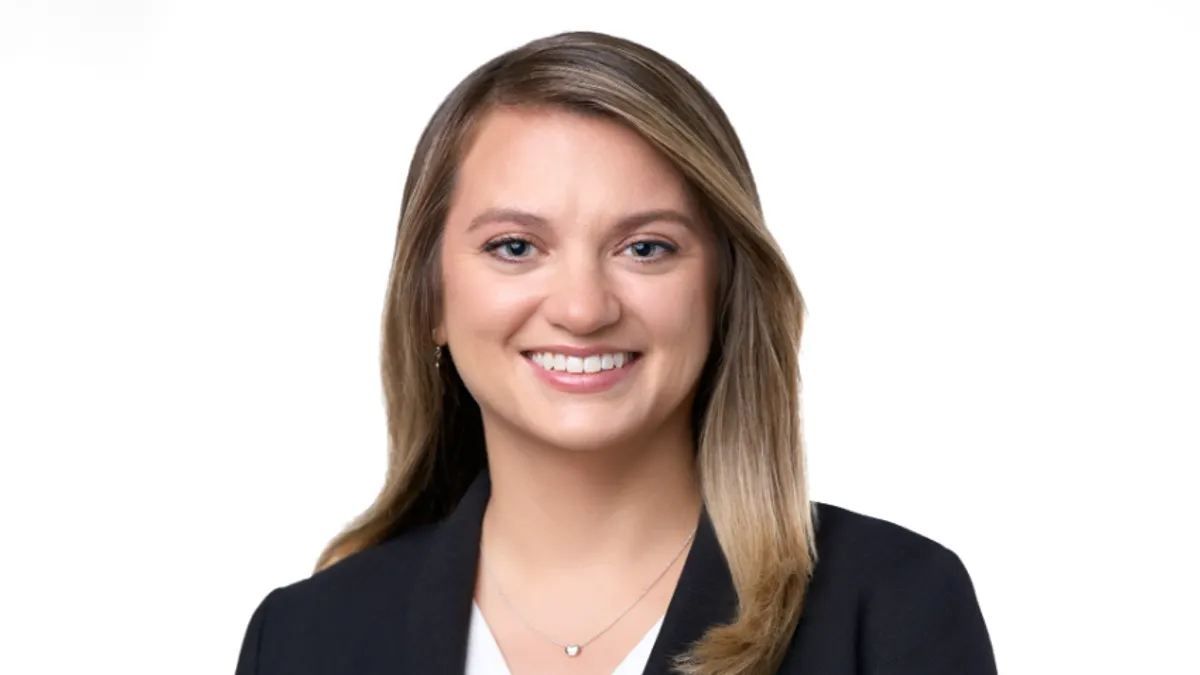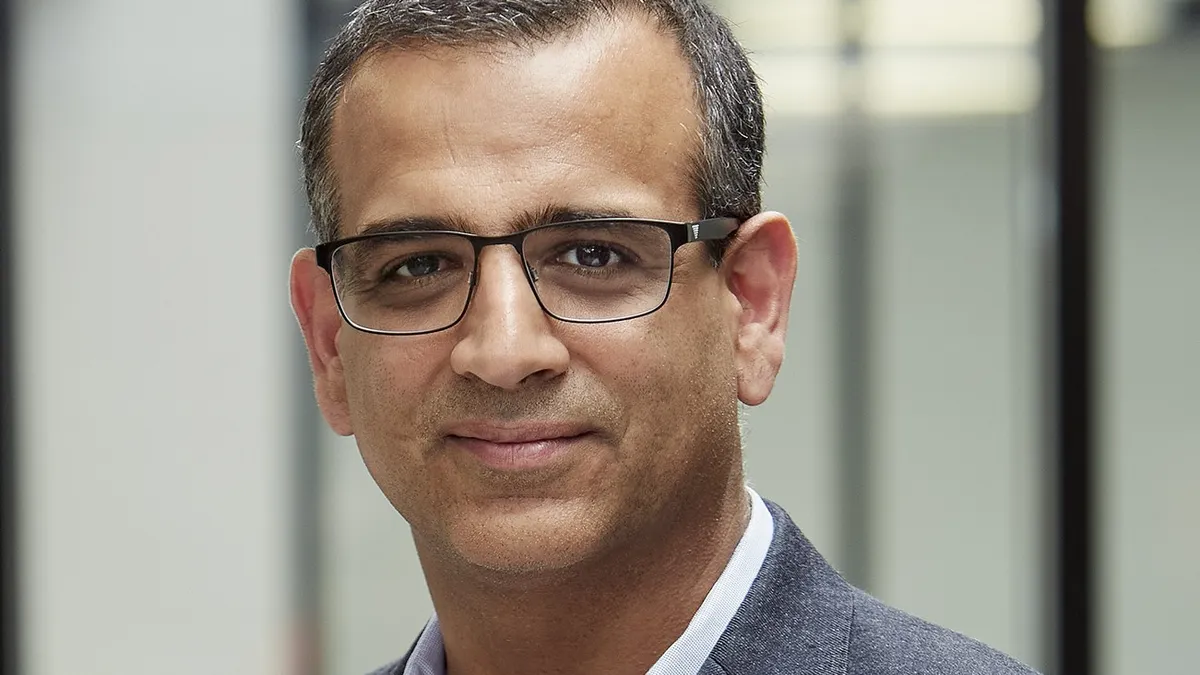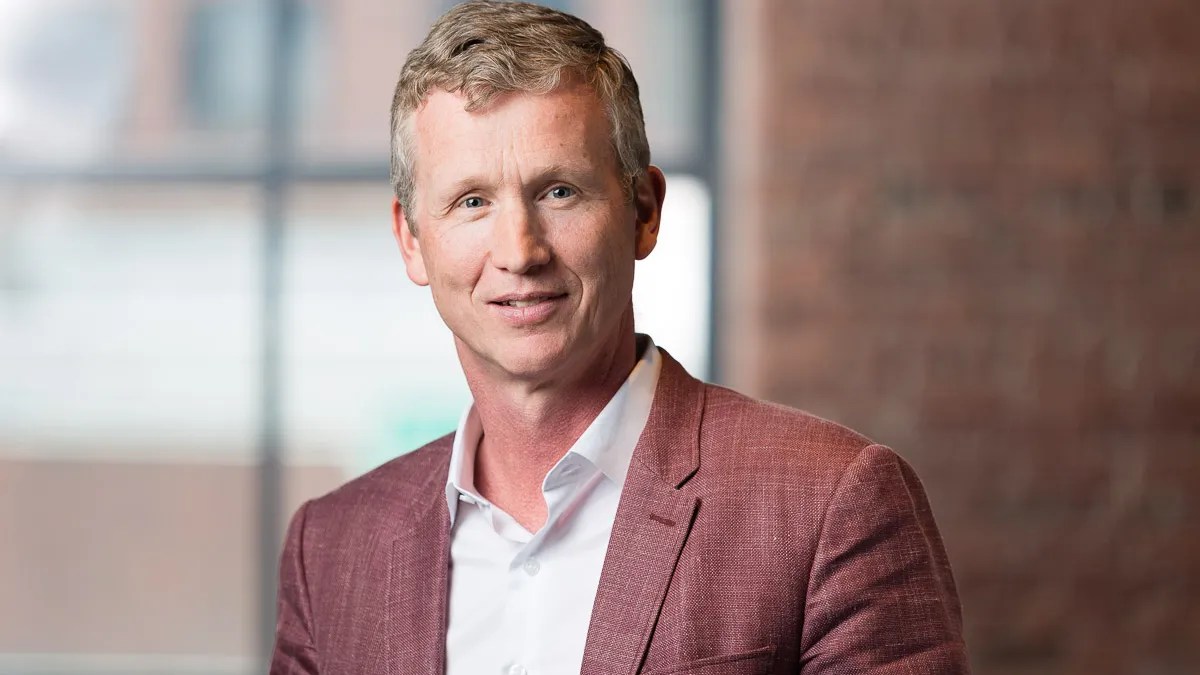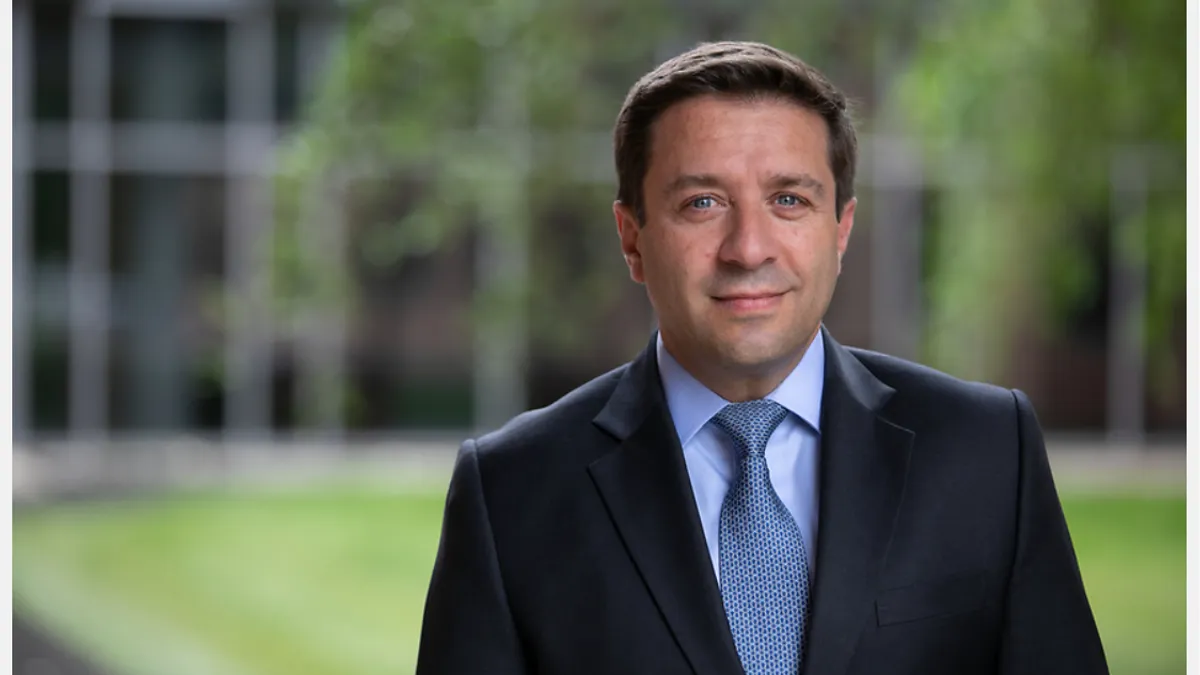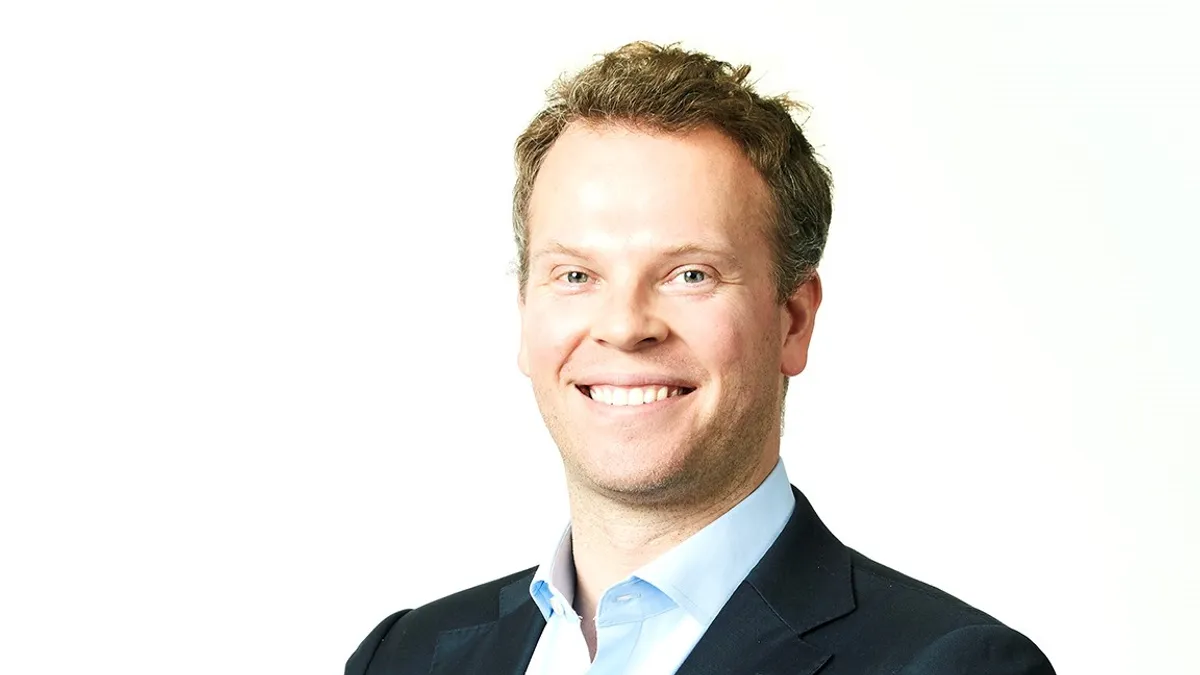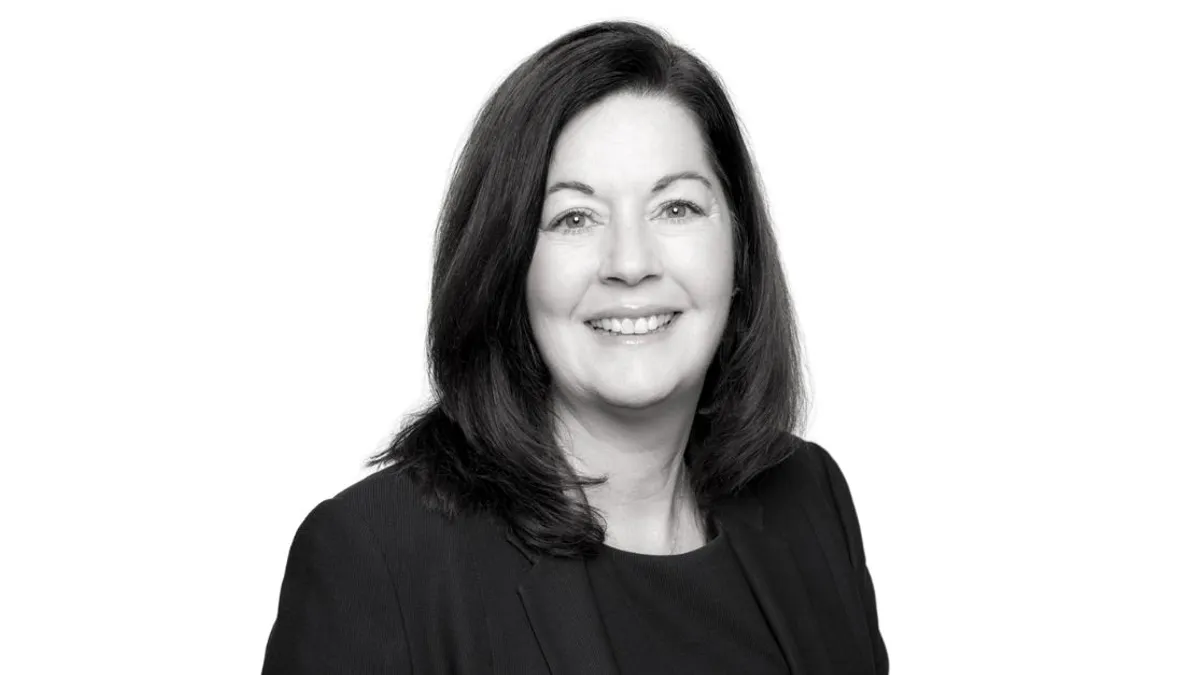As the new CEO of Capsida Biotherapeutics, Peter Anastasiou is optimistic — no, let's make that excited — that the company’s novel and proprietary next-generation adeno-associated virus (AAV) platform will deliver new medicines for rare and debilitating genetic disorders. The 2019 PharmaVoice 100 honoree has set a strategic vision to maximize Capsida’s ability to engineer and select novel capsid variants that have shown to have improved enrichment in the brain and decreased liver targeting following intravenous (IV) administration in animals. The company is pursuing several internal programs as it preps to file an IND in the second half of 2022.
Anastasiou outlines his top priorities and beyond in the first of a new PharmaVoice series, “The first 90 days,” which will outline incoming CEOs’ strategies for success in their first three months of a new position. The management theory is that the foundation of success as a new leader is set in the first 90 days, when it is critically important to accelerate learning, secure early wins, and create alliances.
Anastasiou hopes to steer the biotechnology company’s gene therapy to what the industry, physicians and patients have been dreaming it could be: an answer to debilitating and life-threatening genetic disorders in both central nervous system (CNS) and non-CNS indications.
In his prior roles, including his more than 12 years at Lundbeck, most recently as executive vice president and head of North America, the key to Anastasiou’s success has been his innate understanding that the intersection of what’s right for patients and what’s right for the business leads to success. At the same time, he puts a priority on people and ensuring there are diverse perspectives at the decision-making table. In 2019, Anastasiou received one of the Healthcare Businesswomen’s Association’s highest honors — Honorable Mentor — for his efforts related to elevating diversity, inclusion and equity at Lundbeck.
PharmaVoice: As CEO, what are your top priorities in the first 90 days?
Peter Anastasiou: I am building out a people-science strategy. We are a growing company with 100 employees currently. One of my priorities is to get to know the team, their backgrounds, etc. One of the wonderful things about a small biotech is that I can get to know everybody in the company. People are a high priority, which relates to how we work as a leadership team and the culture we develop. I don't expect that I can be an expert in everything, but I need to be credible and learn as much as I can to be effective in what I do. As such, a big priority for me is digging in with the scientific team, particularly.
Another parallel priority is focusing on the executional deliverables related to the alliances we have with AbbVie and CRISPR Therapeutics. In April 2021, we raised $50 million in Series A financing and have a multi-drug research alliance with AbbVie.
The alliance with CRISPR involves developing gene-edited therapies for amyotrophic lateral sclerosis and Friedreich’s ataxia.
At the end of our day, our job is to meet the needs of patients. And if we do a good job meeting patients’ needs with rare debilitating genetic disorders, we will be successful business-wise and we will maximize the return to investors. This has to be our North Star. This is how I’ve always operated and will further emphasize this within Capsida. From the interactions I've already had with the team, I know they feel the same way, they're driven by the same purpose.
You had a very successful career at Lundbeck, what lessons did you learn that you are bringing to your new role?
I have learned the more senior roles people assume, the less expert they are at everything that they need to do to lead. I learned along the way that I can't be the expert at every function, so to be a credible leader my role is to hire the right people with the right expertise who lead the right way. As a leader, I am setting a vision that we all align to, and then I’ll set up discernible, ambitious goals along the way. My style is to make sure that my people have the support and resources they need and then I get out of their way and let them do their jobs. Any leader who tries to do everything themselves or tries to become an expert at everything isn't going to maximize the potential of the company.
What is it about Capsida’s science that excites you?
There's so much, but first and foremost, it's the potential of the technology, which was recently noted in Nature Neuroscience to demonstrate robust noninvasive, IV gene delivery targeted to the brain while avoiding the liver. Our next-generation AAV platform combined with cargo development and state-of-the-art manufacturing is tackling monogenetic and sporadic CNS and non-CNS disorders that have previously been challenging to address. Current gene therapy approaches have shown dramatic efficacy in several rare diseases but are hindered by imprecise targeting. The inability to selectively transduce specific cells and tissues effectively drives administration of higher doses and resulting safety liabilities, which is especially a problem in addressing brain diseases.
One of the problems with gene therapy has been that it accumulates in non-targeted organs, particularly the liver. We are addressing these concerns with our AAV engineering platform that generates capsids optimized to target specific tissues and cells in the disease organ while limiting transduction of tissues and cells not relevant to the target disease. The science, which originated in the Caltech lab of Dr. Viviana Gradinaru, one of the co-founders, has the potential to save lives — and the value of life is immeasurable.
Part of building a company, as you noted, is a focus on people and developing a winning culture, what are your keys to success?
Hiring people who have expertise and experience with a demonstrated track record of performance is just table stakes. I can find a lot of people who have skills, but I look for people who also go about the job in the right way, meaning with high ethics and integrity, who have a patient focus and are people focused.
A CEO can say anything during a town hall or put out slides about company performance, but it's the people and how they operate, including all of us as leaders, that ultimately forms the culture of a company.
I am also a strong believer in diversity, and I know that gender-balanced leadership teams perform better. Capsida’s diverse leadership is one of the things that attracted me to the company. Four of the seven board members are women — Dr. Gradinaru, two of the lead investors Dr. Beth Seidenberg and Dr. Claire Ozawa, and Dr. Rita Balice-Gordon. This is a diverse company that is already performing at a very high level and I'm excited to help lead it to take that performance to an even higher level.



